One thing I hope to achieve at TCRS and through those brave enough to navigate the entire TWO FACE series on Chris Watts, is to mythbust the seething swamps of misconception around the notion of narcissism.
Thus far I’ve engaged in the narcissism debate only so far as to dismiss it as typically irrelevant to true crime in general, and also mostly [though not entirely] irrelevant to the Chris Watts case.

There are a few exceptional true crime cases where narcissism is a significant feature, and where the word actually deserves to be bandied about. These are few and far between. A classic recent example, however, is Oscar Pistorius. I could spend a lot of time writing about that but I’ll try to convey what I’m getting at about his extraordinary narcissism simply by showing you a few pictures.
If you want to accuse a criminal [or any person] of being a narcissist, you might want to use Oscar Pistorius as your measuring pole.
At a glance we can see Oscar the athlete, Oscar the model, Oscar the marksman, Oscar the cover boy, Oscar on Larry King etc. Oscar appears frequently in front of the camera – in commercials, in documentaries about him, in interviews, in A-list gatherings, in celebrity shows, in magazine features. As a brand ambassador for Nike, Oscar did a lot of his PR on social media, including Instagram, Facebook and Twitter. All of this includes self-inflation. The man as an icon, the man a machine, the man as a superhero, and in one instance, the man as I am the bullet in the chamber…

At the time he shot his model girlfriend to death this was the branding that appeared on Oscar’s official web page.
At the time he shot his model girlfriend to death, Oscar’s face was festooned on billboards marketing the Academy Awards for a local television network [Every night is ‘Oscar’ night].
During Oscar’s criminal trial the prosecution repeatedly noted Oscar’s self-absorbed personality. That even in phone messages read out in court, the prosecutor taunted him, telling him: Your life is all about you...It’s always about you.

Okay so lots more to say on this topic but let’s get back to the topic at hand. How does narcissism apply to the Watts case? The short answer is that it doesn’t, and that the narcissist label used is a misnomer. It’s wrong. The longer answer is that there is an aspect of narcissism worth looking at, but it doesn’t involve Chris Watts [besides perhaps his weight loss in the final months].
There’s a lot more to be said about the other aspect of narcissism which is a particular idiosyncrasy in this case – it’s in the unusually extreme use or even addiction, to social media.

If you’re one of those folks talking the narcissism talk about the Watts case, and if you’re on Facebook, and if you’ve ever taken a selfie, then you’re a narcissist.
Is Facebook Really a Playground for Narcissists? – Psychology Today
Facebook addiction linked to narcissism and other psychological factors, study finds – PsyPost
Is Your Facebook Obsession Feeding a Personality Disorder? – Reader’s Digest
If you’re on Facebook a lot, then you’re a lot of narcissist. You be the judge for a change.
The narcissism debate becomes useful not so much when directed at criminals [unless it’s the Prime True Crime Narcissus himself, Oscar Pistorius], but when we reflect on it in a more general sense.
The extraordinary social media preoccupation in the Watts case, and the catastrophe that took place because of, or in spite of that fake Facebook fairy tale, presents us less with a question than with a warning. We’re cautioned by this cautionary tale, or we ought to be. We’re warned about how selectively [and deceitfully] we project our own fairy tales on social media can come back to haunt us.
Part of modern narcissism is the inability to admit mistakes, and to be highly reactionary and resentful when we do make mistakes, and these are pointed out [especially to an audience].
But what happens when we come clean about our own narcissism?
The YouTube video below is a good example. It’s a simple clip of an Irish rock star talking to Dr Phil, openly and honestly, about her mother. What you’ll intuitively pick up when watching the clip is a strange thing that happens with narcissism: we all need some.
We need a certain amount of narcissism to be healthy and happy. And it starts with our parents. If our parents give us that sense of being valued and loved for who we are then the chances are we’ll develop a healthy and balanced narcissism. If they don’t, then we must find our narcissism somewhere else, and that often leads to imbalances and overcompensation.
In Oscar’s case, his father rejected him as a child [remember his son had lost both legs], and his mother, who doted on him, died prematurely due to a botched medical diagnosis when he was a young teenager.
So Oscar’s narcissism is partly an attempt to seek the love he desperately needed from his parents in the theater of the real world, and the arena of the athletics track, and from there on social media. Narcissism for an addict is like crack cocaine, once you get a shot, is one shot ever enough? This is so because in the world of the wounded child, the hole can never be filled because even as an adult, the wounded child remains.
It’s like a bucket with a hole in it. No amount poured in will ever keep the bucket [the sense of self] filled. So something must be found to keep the self-worth fountain flowing. Social media is a handy tool for that.

Because one’s narcissism can be quantified in social media, now one can measure one’s self worth. Not only that, one can have one’s self-worth measured vis-a-vis the measurement and social power of others.
In the case of Sinead ‘O Conner, we see an almost Van Gogh-like troubled artist syndrome. Van Gogh was rejected by his parents, and his siblings [excluding his brother Theo], this lead him to over-perform and overcompensate. In the same way Sinead ‘O Conner must find her mother’s love somewhere besides from her mother – on a stage, in front of a shouting audience [I’ve attended one of her shows in person, and went backstage to meet her].
Is this narcissism by the unloved malignant or healthy? If parents don’t endow their brood with healthy narcissism, they must generate it themselves, somewhere else. Who is to say whether this is healthy or not? Do you really have the authority to prognosticate on the narcissism of someone else? In the end, your attitude to someone else’s narcissism is relative to your own narcissism. What that means in the scheme of things is a subjective soup full of sound fury, signifying nothing.
Read my magazine article on Oscar Pistorius at this link.
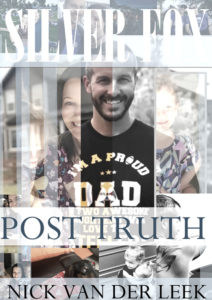
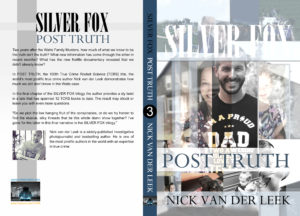
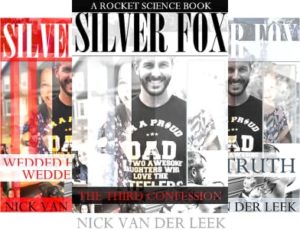
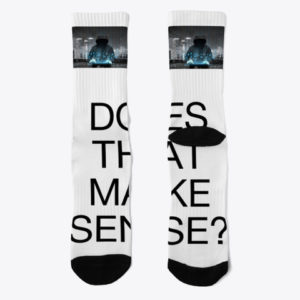
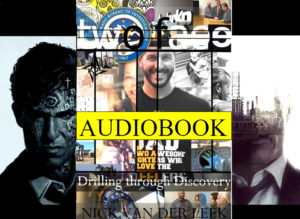
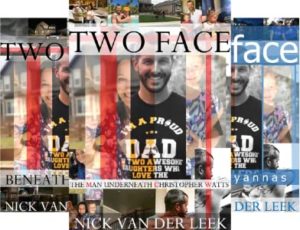

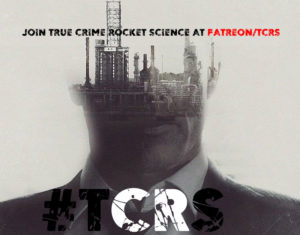

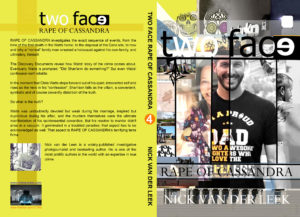
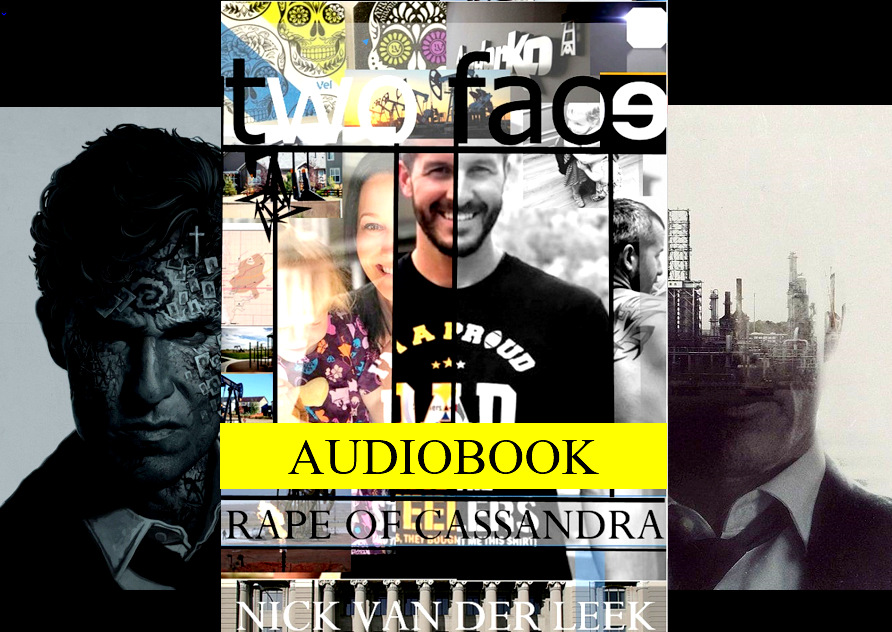
I would agree it’s relevant to Pistorius but not to Watts.
It does however relate to the Watts *case*, as regards Shannan and her MLM and Facebook marketing.
I adhere to the definition of narcissistic personality disorder involving overcompensation for a broken and deficient sense of self.
The idealized self is false and functions badly. It pursues actions which are diametrically opposed to its genuine well being ( not to mention the well being of those subject to its influence). It grows not with the true self, but at the expense of it.
Excellent explanation, CBH. By all the metrics one can use, CW was a devoted family man who doted on his wife and children. The only way the narcissist label can be applied to him is *retroactively* – saying, “Oh, look – he murdered his wife and children. Must be a narcissist.” There was no evidence of any narcissism on his part until very shortly before the murders – all the rest of those years, almost the entirety of his children’s lives and his marriage, there was not a trace of narcissism to be seen. So I categorically reject the diagnosis of narcissism for CW.
Now someone *else* in the scenario, that’s another story.
Thanks 😉
@nick van der leek For clarity, can you please list your education and any credentials held in the areas of psychology and so that we have a better understanding of how you drew your summation? Thank you.
Sure thing Sara [btw this is I think your 7th or 8th fake profile trying to weigh in on the narcissism subject with the purpose of invalidating my knowledge]:
I studied psychology, consumer psychology and industrial psychology at a university and at post graduate level. Beyond that I can say, in my experience, including covering court testimony of “expert psychologists”, they often know almost nothing about the psychology of true crime, they’re different disciplines.
Criminal psychology is something you learn over time studying, analyzing and profiling criminals just as John Douglas [aka Mindhunter did]. One develops a feel for it by meticulously navigating hundreds of pages and endless hours of interrogations in one particular case. Then you do the same with another case. Then another. Then, over a period of months and years, you start to notice patterns that overlap as well as idiosyncrasies.
I’ve done that with the Ramsey case file [over the course of several trilogies], the Amanda Knox interrogations and confessions [also covering more than one trilogy], the Van Breda axe murderer court testimony [6 books] and the Casey Anthony evidence file [two books and counting], to name but a few.
In one of your comments you said all forms of narcissism are malignant. That’s incorrect. Narcissism is a key aspect of – for example – Olympic athletes. A guy like Michael Phelps has to beat his body into shape in order to get himself into mint condition. Narcissism is central to that. Self-belief, believing you are better and also the best.
https://www.walesonline.co.uk/news/wales-news/narcissism-boosts-athletes-performance-study-2030095
http://time.com/4457989/lochte-narcissist/
https://www.researchgate.net/publication/50936603_The_Role_of_Athlete_Narcissism_in_Moderating_the_Relationship_Between_Coaches'_Transformational_Leader_Behaviors_and_Athlete_Motivation
So in that sense narcissism is part of the fuel that drives human beings to excel, to go to the moon, to have an Academy Awards.
If the contentions made at this site are so spurious, why not go somewhere else and slur and undermine there?
“If the contentions made at this site are so spurious, why not go somewhere else and slur and undermine there?”_________________
One can only wonder. There’s something creepy and stalker-like about a poster who opens multiple accounts to keep badgering on the same subject. It’s not going to put off those of us who can maintain a large and liberal mind, to a renaissance man such as you.
It feels like every single relationship problem is now caused by the word ‘narcissism” It is amazing how many people throw that word around to the point of being a meaningless charade. I once spent time reading a FB group about the dreaded narcissist and after a while I found it hard to tell who was the victim and who was the evil malignant monster. It seems obvious that any person who is successful must need a good dose of self-interest and a nice ego. Who would want to be an artist that no one appreciated? Who would write poetry if it is just words on a page. Who would want to dance to a ballet and ruin one’s feet to perform on pointe if not to hear the audience applause. To me, the whole narcissism meme just adds babble and blur to the picture.
“I once spent time reading a FB group about the dreaded narcissist and after a while I found it hard to tell who was the victim and who was the evil malignant monster.”
Well said!
Addendum: Horrible that Sinead O’Connor would be so rankly abused by her own mother, yet pine for her. There really needs to be some form of transcendent justice. Deeply disturbing video.
CBH, I was thinking the same thing. It struck me how she said she wished she could love her mother and then shared that would hold on to her and never let her go if she could see her one more time.
I know. No wonder she’s been suicidal with such conflicting feelings tearing her apart. Sadly disturbing how much she loves and longs for the mother who was so cruel to her. Makes me hope they can sort it out and start anew in some future incarnation.
One of the things that stuck out to me in that video clip was how desperately Sinead wants her mother’s approval, to the point of wanting to be the mother *to her*. Because children are so dependent on their parents, who are much, much larger and sometimes terrifying, to the point that children sometimes fear their parent(s) will KILL them, they can’t face that understanding – they would not survive. Instead, they internalize guilt – “It was my fault…if I hadn’t done that bad thing…” and create a hopeful narrative – “If only I can be good enough, my parent will love me, approve of me, feel proud of me, affirm me.” Everything the child needed becomes a possibility if the child can only figure out what it takes.
The reality, unfortunately, is that some parents don’t have that to give. No matter what the child does throughout life, the parent will never love him/her, because the parent simply doesn’t have that to give. But one of the worst “sins” is to condemn a parent! To say your parent was abusive or just bad. That is a cultural taboo, one that is affirmed by every religion. You’re supposed to love your parents, always be grateful to them, treasure them, OBEY them, do whatever they tell you, etc. Yet there is never any set of rules or even guidelines for the *parents* (aside from whipping the children regularly, as in the Bible). Power always protects itself, whether in corporations or in families or in religious organizations, and the adults are always expected to present this “unified front” against the children. There are, what, 30-some countries around the world where it’s against the law to strike a child, but here in the US, Christian parents defend the corporal punishment of children as their “right”.
Since the children internalize this – “S/He only beats me because I’m bad” – this creates a deep-seated feeling of shame and inadequacy, apart from the humiliation of being *beaten* in the first place. One of my favorite bosses told me once that his wife was divorced when they met and that her first husband had been physically abusive. She didn’t even tell my boss about some of the abuse until after they’d been married a while; he recounted that she told him, “You have no idea how deeply shameful it is when this person who’s supposed to love and cherish you is instead hitting you.” Parents are supposed to *love* you, not *hurt* you! But because it becomes such a source of shame, children typically won’t talk about it. They’ll defend their parents 1) to survive, and 2) in hopes that their love will “fix” the parents and cause them to love them back. You can see Sinead falling into this trap as well. The biggest danger of this is that, in defending the parents’ behavior this way, the child tends to become a parent who abuses his/her own children the same way, often worse.
Sinead’s mother was clearly mentally ill, but that doesn’t change the fact that what Sinead *experienced* was abuse. She should be allowed to feel anger, even outrage, at this treatment. If her mother was simply too defective to do any better, where were the other people? Relatives, neighbors – WHY was this going on and allowed to go on so long, when it was clearly harming the children? This is a useful course of inquiry and can contribute to the kind of healing that breaks this chain of pain. The person who is able to get to this point is far less likely to do to his/her own children what his/her parents did to him/her. It’s so sad to see Sinead stuck so far from this point – I truly feel for her.
Excellent post. Very clarifying.Yes, you’re on target about the feeling of shame, and the tabu against blaming the parent. Horrifically sad for Sinead, and one wonders how her own mother had been treated in childhood.
A little critical thinking + technical research on the author here has uncovered that the frequent commenter (under most of the articles) using the name “CBH” is in FACT Nick himsel folks!! He’s posing as a autonomous reader and commenter to give the illusion his articles are being more favorably received by readers than they actually are. Geez, that’s a desperat move. TRUTH abounds.
No, I just over-comment.
Lol!! Great retort!
😂😂
AKA Sara, and I think I just might be addicted to reading Mr. Leek’s books. I downloaded 2 this weekend and read both about Oscar Pistorius. I keep on checking this site to see when his next book will be out on the Chris Watts case.
Thanks Lisa. I hope you’re leaving reviews on Amazon. 😉
The Sinead clip was so heartbreaking. I ran into a woman online some years ago – we were talking about Christianity. I asked her why she converted to Christianity, and this is what she said:
“Some years ago, a baby I loved very much died. Christianity said I’d be able to see her again.”
It’s the purest evil that religions take advantage of this vulnerability to exploit people.